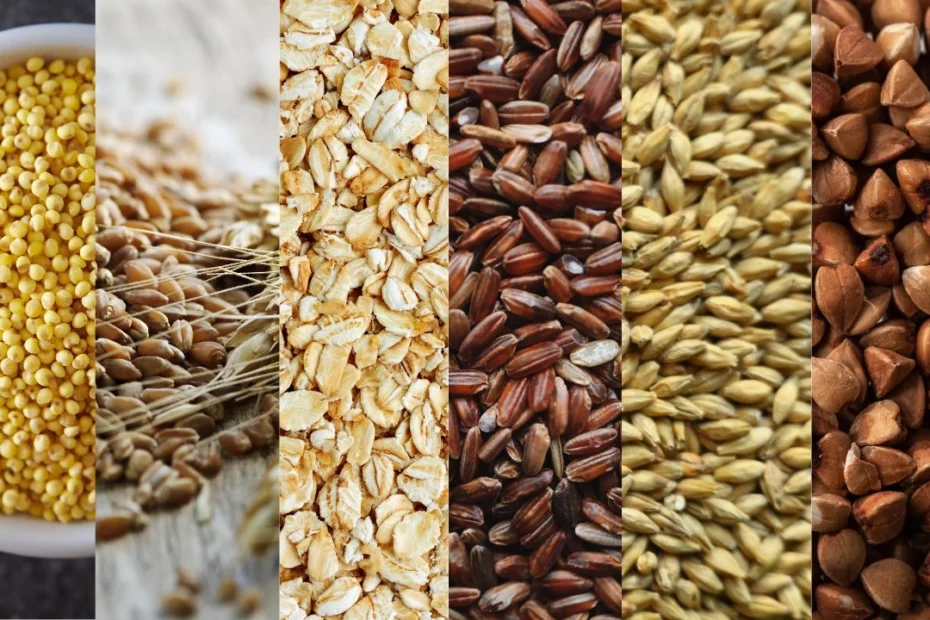Introduction:
Refined grains are considered bad for health due to the process they undergo, which removes the nutrient-rich bran and germ, leaving behind the starchy endosperm. This removal results in a product that lacks essential nutrients, fiber, and beneficial compounds. One of the main issues with refined grains is their low fiber content. Fiber plays a crucial role in digestion, blood sugar control, and maintaining bowel regularity. Without fiber, refined grains can contribute to constipation, blood sugar spikes, and an increased risk of conditions like diabetes and heart disease.
Furthermore, refined grains have a high glycemic index, which means they digest and absorb quickly, raising blood sugar levels quickly. This may put additional stress on the body’s ability to produce and regulate insulin, which may result in insulin resistance, type 2 diabetes, and weight gain. Additionally, the refining process eliminates crucial vitamins, minerals, and healthy components, leading to nutrient inadequacies when refined grains are consumed.
This may have a negative effect on your general health and wellbeing. Furthermore, refined grains have been related to persistent low-grade inflammation, which has been connected to a number of diseases including heart disease, obesity, and several malignancies.Their high calorie content and deficiency in fiber can lead to overeating, weight gain, and a higher chance of becoming obese. Therefore, choosing whole grains over refined grains is better because whole grains maintain their fiber, minerals, and healthy components, which provide a number of health benefits and support a diet that is varied and nutrient-dense.
Choosing the Right Alternative:
When it comes to replacing refined grains with healthier alternatives, there are numerous options available. Here are six nutritious alternatives to refined grains that you can incorporate into your diet:
- Millets: Whole millets are a wholesome and functional grain to include in your diet. These provide a number of health advantages. They are low in glycemic index, gluten-free, and packed with nutrients. You can enhance digestion, control your weight, and reduce your risk of developing chronic diseases by incorporating whole millets into your meals.
- Whole Wheat: Opt for items made from whole wheat rather than refined wheat flour. The bran and germ, which are high in fiber, vitamins, and minerals, are still present in whole wheat. To experience the health advantages of whole grains, look for whole wheat bread, pasta, and flour.
- Quinoa: Quinoa is a versatile, nutrient-rich, and inherently gluten-free grain. It is a great source of fiber, protein, and other minerals. Enjoy quinoa in salads, soups, and stir-fries or use it as a rice or couscous replacement.
- Brown Rice: Replace white rice with brown rice, a whole grain that still contains the bran and germ. Compared to refined rice, brown rice contains more fiber, vitamins, and minerals. It can be used in a variety of cuisines, including pilafs and stir-fries.
- Barley: The grain barley has a chewy texture and nutty flavor and is high in fiber. It has plenty of fiber, nutrients, and vitamins. Use barley in salads, soups, stews, and risottos and pilafs in place of rice.
- Buckwheat: Despite its name, buckwheat is gluten-free and unrelated to wheat. It contains a lot of protein, fiber, and antioxidants. Use whole buckwheat groats in salads or porridge, or use buckwheat flour to make pancakes, noodles, or other baked products.
- Oats: A healthy whole grain that is high in fiber and antioxidants is oats. They can be used in baking, as smoothie ingredients, or as oatmeal. To preserve more fiber and minerals, pick rolled or steel-cut oats rather than quick oats.
Remember that not all grains are made equal. Since whole grains keep their fiber, minerals, and healthy components, choosing them over refined grains is healthier. For optimum health and disease prevention, whole grains including whole wheat, quinoa, and oats should be prioritized in a well-balanced diet due to their wealth of health advantages.

